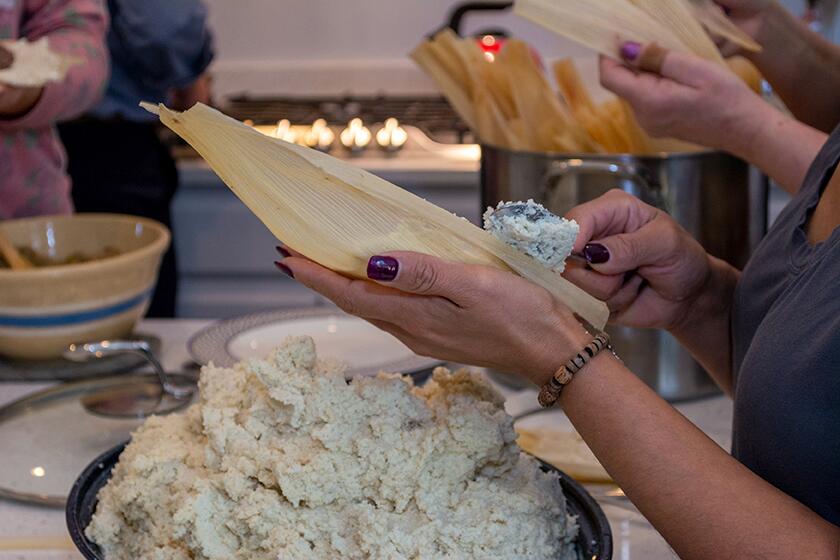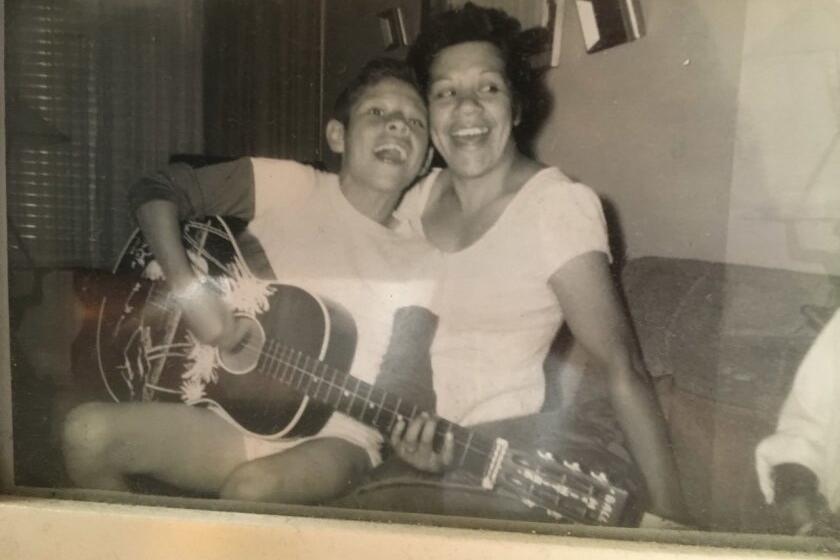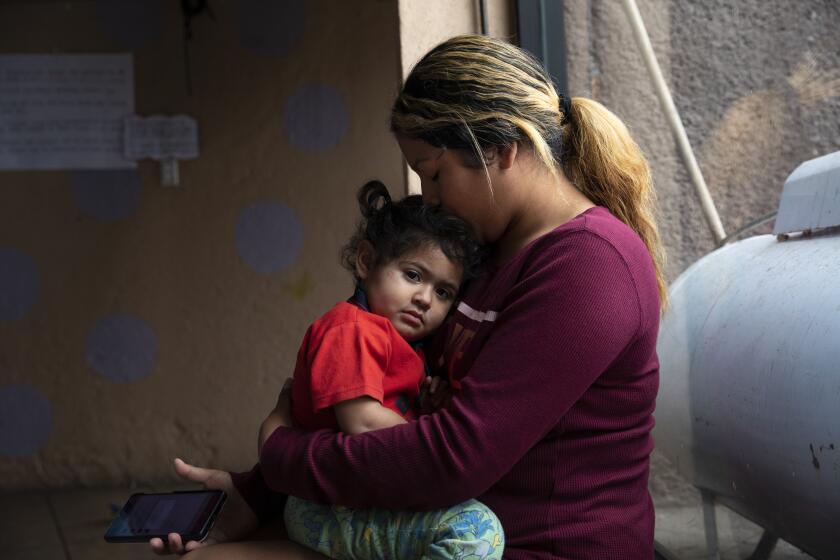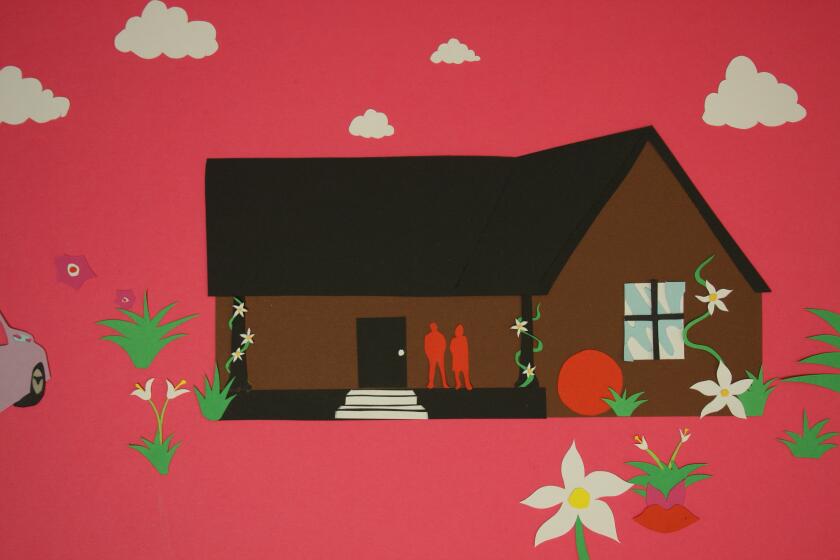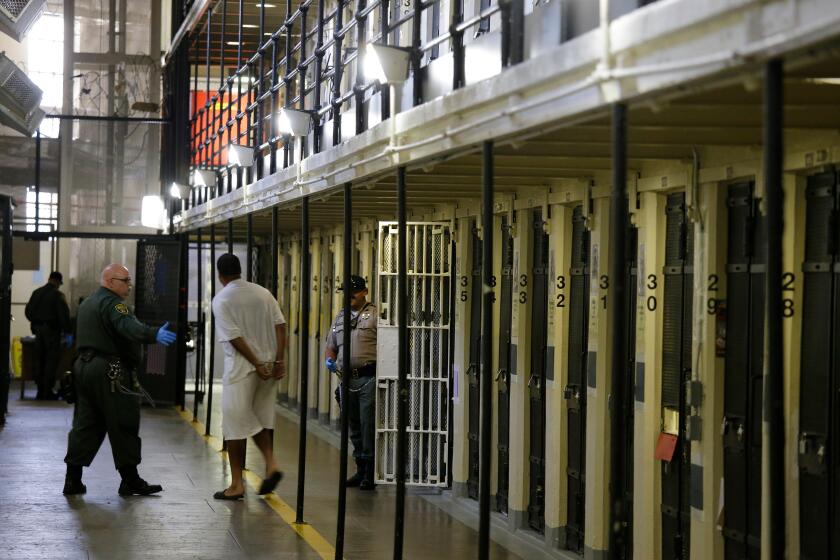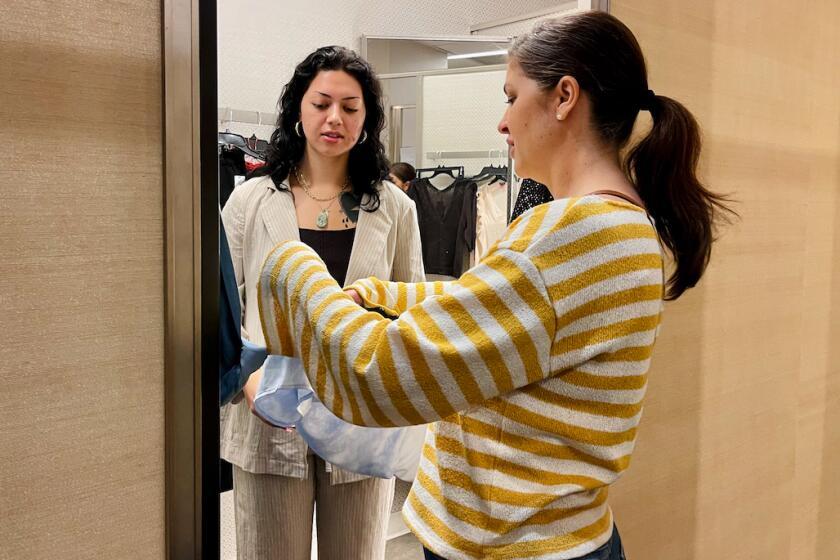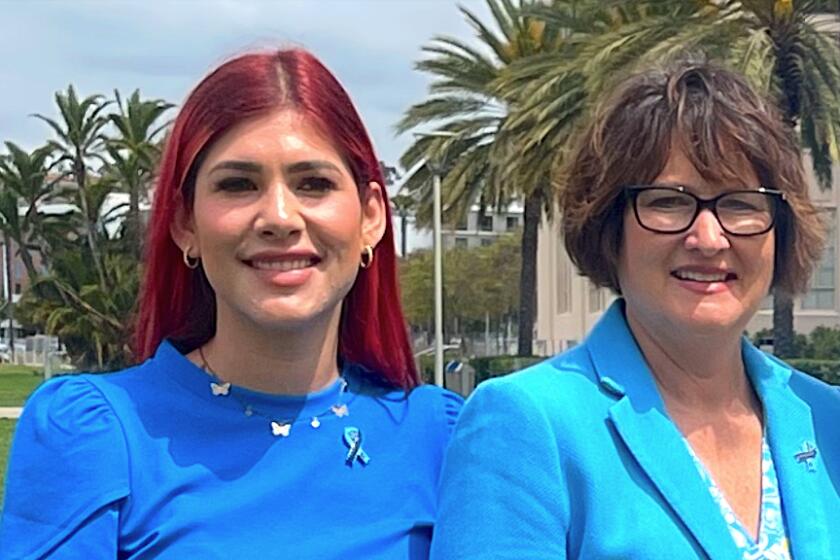Opinion: During Hanukkah, we display God’s light in our world
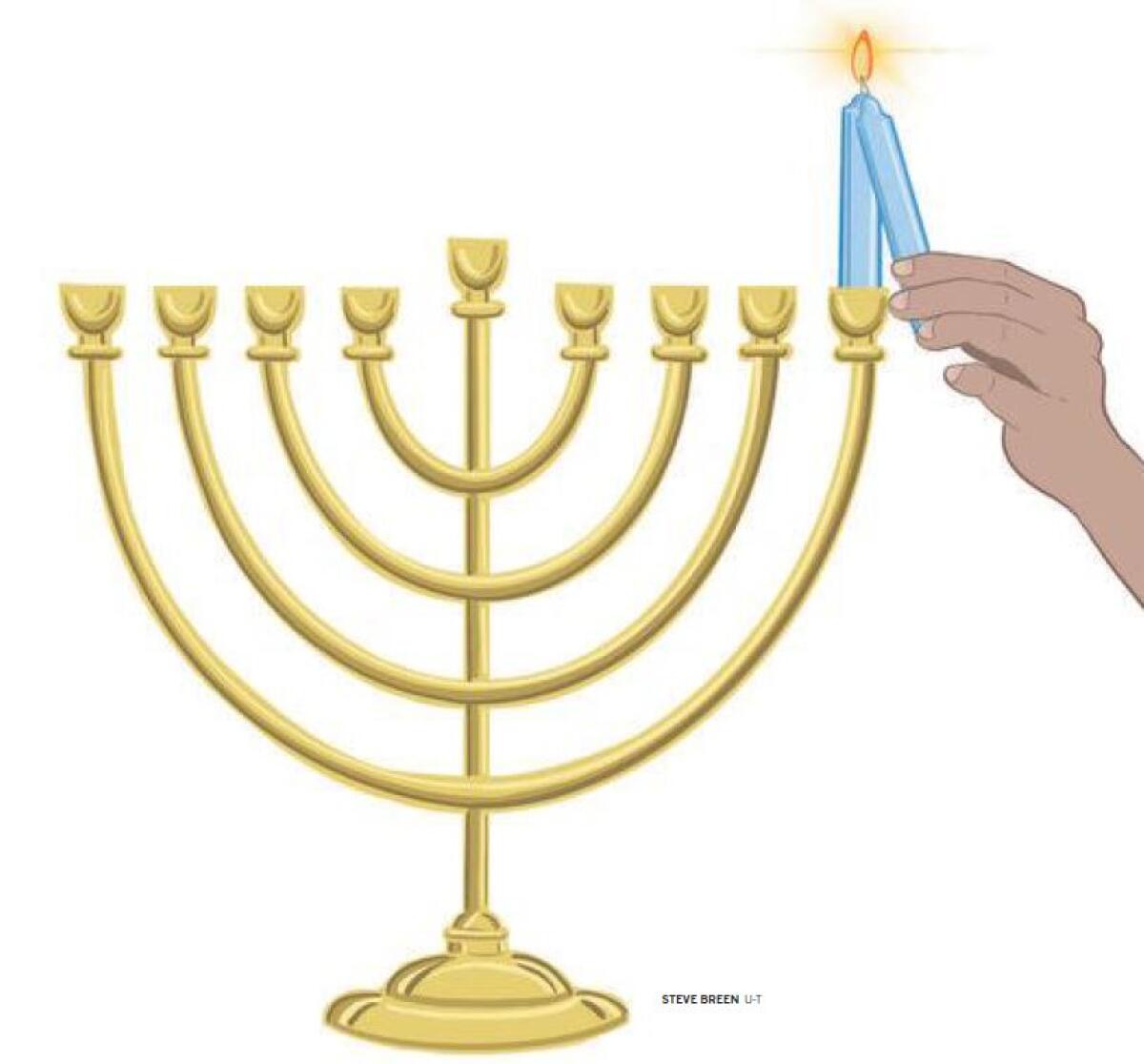
The deeper meaning of Hanukkah is to affirm who we are.
Shulman is senior rabbi of Congregation Beth El in La Jolla. He lives in La Jolla.
I appreciate the desire at this time of year to bring people together. In our intensely polarized society, I understand the appeal of harmony, of overcoming our divides. Alternatively, I suggest the winter holiday season in America is an opportunity to come together by respecting our differences.
Rather than overlooking what is different about us and our holidays, let’s use these days of light and happiness to learn more about each other. Let’s each enjoy our respective holidays. Let’s share with our families and friends as appropriate. But let’s not pretend we are honoring the same religious memories.
A typical Hanukkah feast in my family usually includes a fried dish or two, and the oil used in frying commemorates the sacred oil used in the rededication of the Second Temple in Jerusalem.
Maya is an advertising executive, producer and writer who lives in Chula Vista.
We provide this platform for community commentary free of charge. Thank you to all the Union-Tribune subscribers whose support makes our journalism possible. If you are not a subscriber, please consider becoming one today.
Hanukkah and Christmas have nothing to do with each other. Except for one possible result of history and the winter solstice. Without the events Jews celebrate on Hanukkah, Christmas might not have come to be.
Hanukkah commemorates how in 164 B.C.E. a group of pious Jews led by Judah Maccabee liberated and rededicated the Second Temple in Jerusalem from the Seleucid king, Antiochus IV, who had prohibited Jewish rites and observances and defiled the Temple precincts.
Replicating previous Biblical ceremonies for ancient Temple dedications, “Judas and his brothers and the whole community of Israel decreed that the days of the rededication of the altar should be observed in their season, every year, for eight days,” we read in the First Book of Maccabees.
At first, on Hanukkah the Maccabees celebrated the restoration of ritual in the Temple precincts, a renewal of their relationship with God. Over time, the legacy of Hanukkah became about navigating identity, upholding monotheism and sustaining a way of life.
In 2nd century B.C.E. Hellenistic Jerusalem, internal Jewish social, religious and political conflicts about how to live as Jews among the Greeks were rife. Through the ages, those challenges remain. In hospitable and foreboding environments, when and how does a group of people stand apart, or adapt, or adopt.
This Hanukkah we who are Jewish celebrate the particular identity we share through our people’s religious heritage. We kindle lights for eight nights to display God’s light in our world and the light of Jewish principles in our lives. We affirm our bond with the Jewish people of past centuries and generations and those yet to be.
The span of events leading up to and following the rededication of the Temple altar in Jerusalem is complicated. It encompasses hundreds of years during which ancient Jews lived in association with and under the control of great civilizations: the Babylonians, the Persians, the Greeks and the Romans. It was through both separation from and acculturation within those civilizations that our ancestors created the traditions, culture and lore we who are Jewish treasure today.
In actuality, the Hanukkah event is a brief incident of significant historical consequence. It is a bridge from an ancient past to a then unknowable future. Some historians believe that if the Maccabees had not reclaimed their Jewish religious practices, if they had not sustained their particular Jewish identity within the larger Hellenistic society, if they had left no legacy of monotheism to the world, then perhaps Christianity and Islam might not have come to be.
The deeper meaning of Hanukkah is to affirm who we are. To remain distinctive while acculturating to the world around us. To stand apart by participating in the life of the Jewish people and to join in by contributing to society. It’s a difficult and compelling balance many Jewish individuals and families seek to achieve and many of our neighbors do not really understand about us.
This winter holiday season when Hanukkah and Christmas do not overlap is an opportunity to come together by celebrating what we don’t have in common, not overlooking it. The beauty of this season lies in people celebrating different holidays for particular meanings and respectfully honoring what others hold as sacred.
Get Weekend Opinion on Sundays and Reader Opinion on Mondays
Editorials, commentary and more delivered Sunday morning, and Reader Reaction on Mondays.
You may occasionally receive promotional content from the San Diego Union-Tribune.

